The most sought-after musical instrument of the 1950s and 1960s, the beloved electric guitar, is set to have a resurgence with Verso Musical Instruments’ Cosmo, a new- age electric guitar striving to restore its fading relevance. Based in Kassel, Germany, the boutique company headed by industrial designer Robin Stummvoll, recently unveiled an unconventional guitar design with a sleek and simple sheet metal body. Yes, you read that right. Ditching the conventional wooden body, the German designer went on to strip down the arrangement of the instrument to the bare minimum, driven by sheer necessities as opposed to aesthetics. Using simplified processes and dabbling with materials not deemed competent for building musical instruments, Stummvoll conceived a clean, versatile and innovative model for Cosmo. "I like things that don’t hide their function or their purpose," shares Robin Stummvoll. "Electric guitars are dead simple tools, yet most people don’t really know how they work since the electronics are hidden or they look complicated and over engineered," he notes.
Stummvoll finds beauty in things that are simple, yet smart in their use of material, a characteristic prominent in his designs. The journey of the form of Cosmo, from the initial roof batten stick guitar to the sheet metal configuration, is purely guided by function. The simplest electric guitar solely requires a rod on which strings are tensioned and he used that as a start point. The guitars of Allan Gittler, Uli Teuffel & Nobuaki Hayashi opened up horizons for the designer, and encouraged him to ask questions regarding construction and materials. "I am far more interested in the search of something, be it tone, function or simplicity," says Stummvoll. "I am restless till I haven’t found a really good solution for any detail and I think that is what luthiers and designers have in common," he adds.
The neck of the Cosmo built from locally sourced tonewoods is fastened to the body made from a single piece of 1mm thick bent steel sheet, powder-coated with a plastic-based paint. Sheet metal presented with itself a plethora of opportunities for the player as well as the builder and allowed Stummvoll to integrate multiple parts into one single sheet without compromising on the playability and ergonomics. The structure embodies not just simplicity but also a balance between material and form. Verso, as a result, manifested an instrument that was honest and at the same time friendly and feminine, especially with such a technical materiality. "Realizing that the guitar is an electric device it feels strange to me that they are made out of wood in the first place," the designer points out. Of course people think a guitar made of metal has to sound tinny or thin, but, as soon as they hear how warm and open my instruments sound, these doubts are gone fast," he explains.
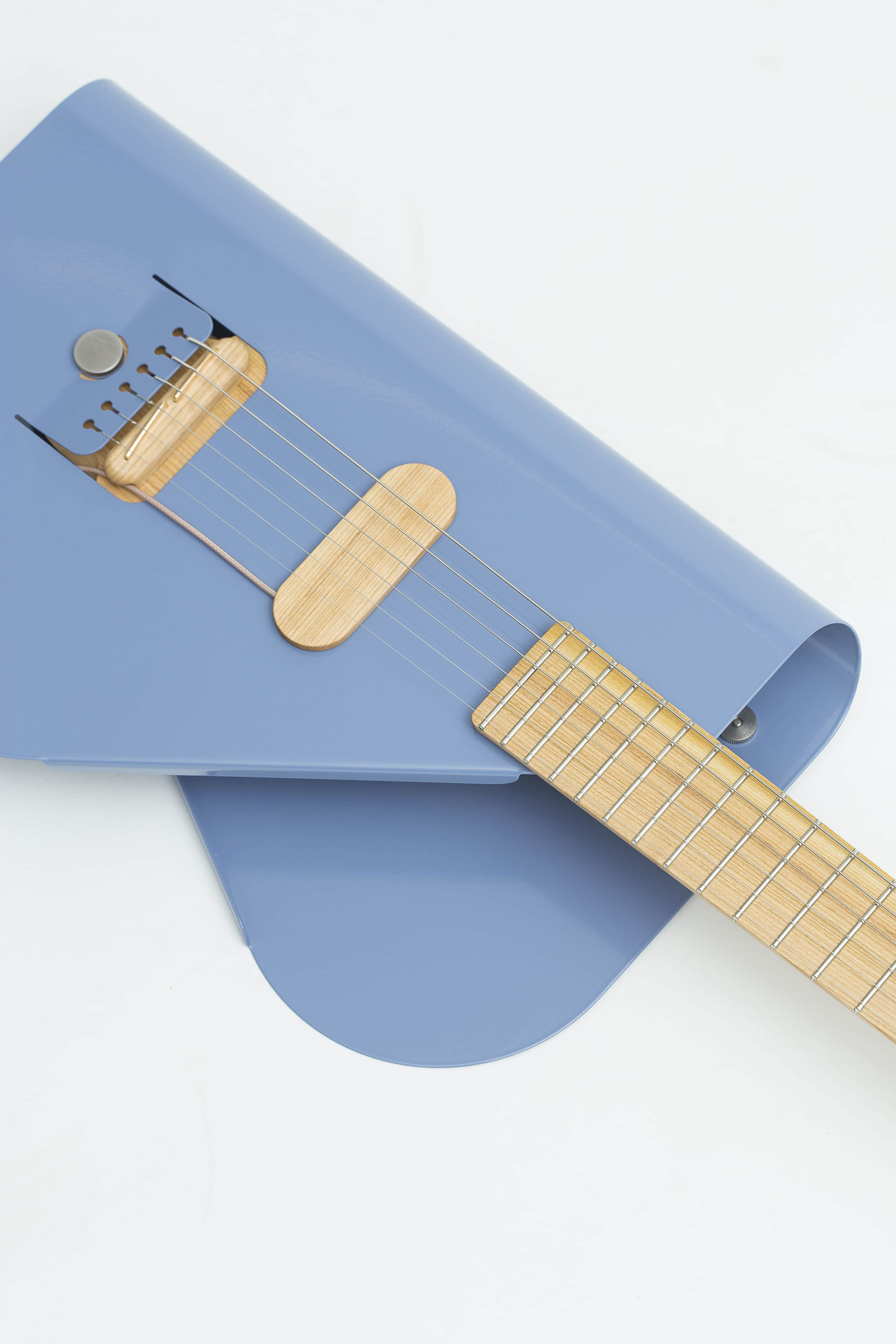
Cosmo’s most noteworthy feature is its freely movable and easily exchangeable magnetic pickup system, an unforeseen discovery turned into a unique selling proposition. The pickup can be moved around on the metallic surface, swapped with another type of pickup or two pickups can be used in tandem opening up the door to a boundless spectrum of tunes and effect chains. It works under the strings and away from them because it captures the guitar’s body resonance. The wooden pickup cover visually blends in with the bridge base made of the same material, adding a warmer timbre to the resulting tone. "You can move the magnetic pickups around on the guitars surface and hear tonal differences like with a stethoscope" Stummvoll shares. "Also being able to alternate an electric sound by actually moving the parts physically is an approach I find very beautiful and inspiring," he adds.
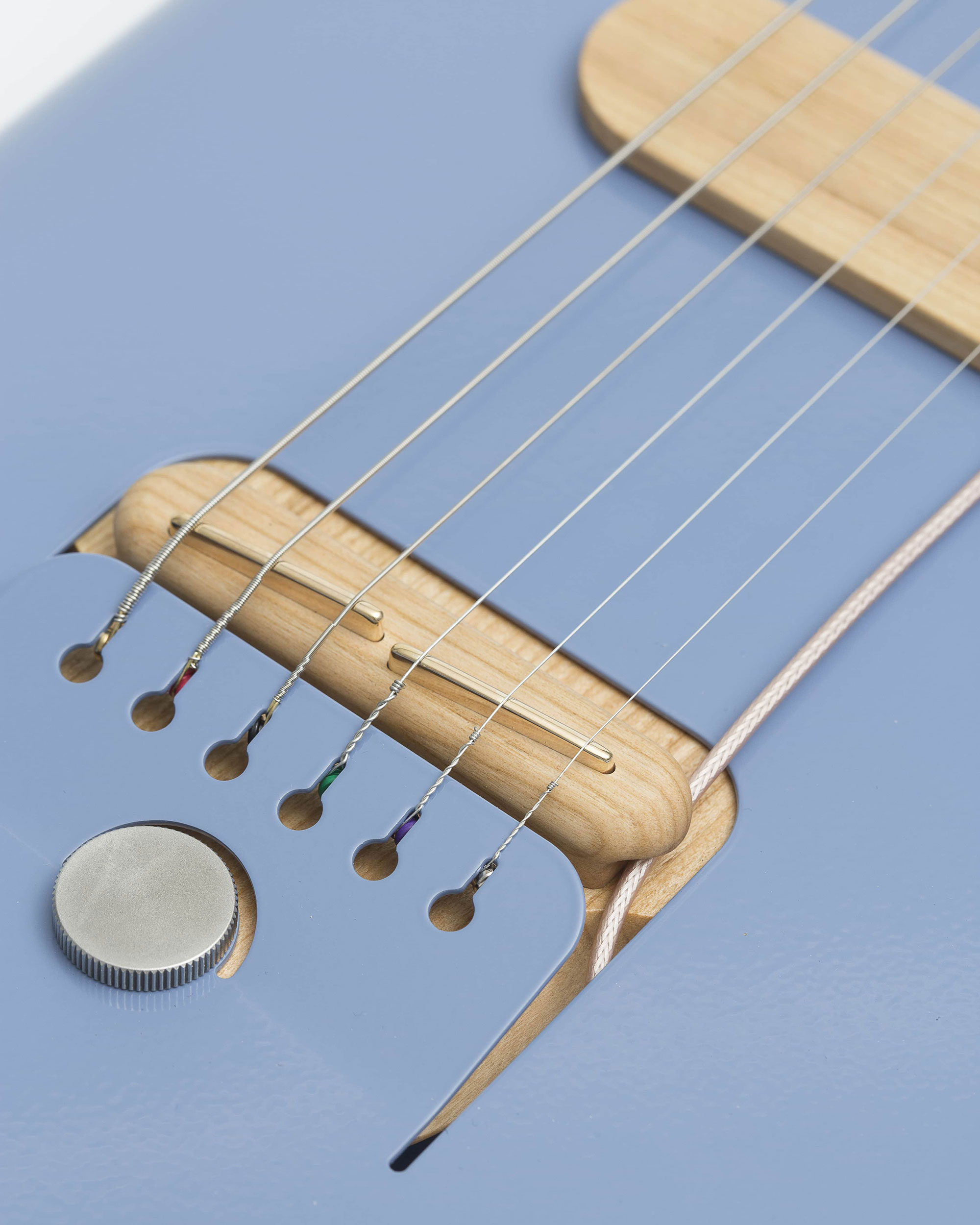
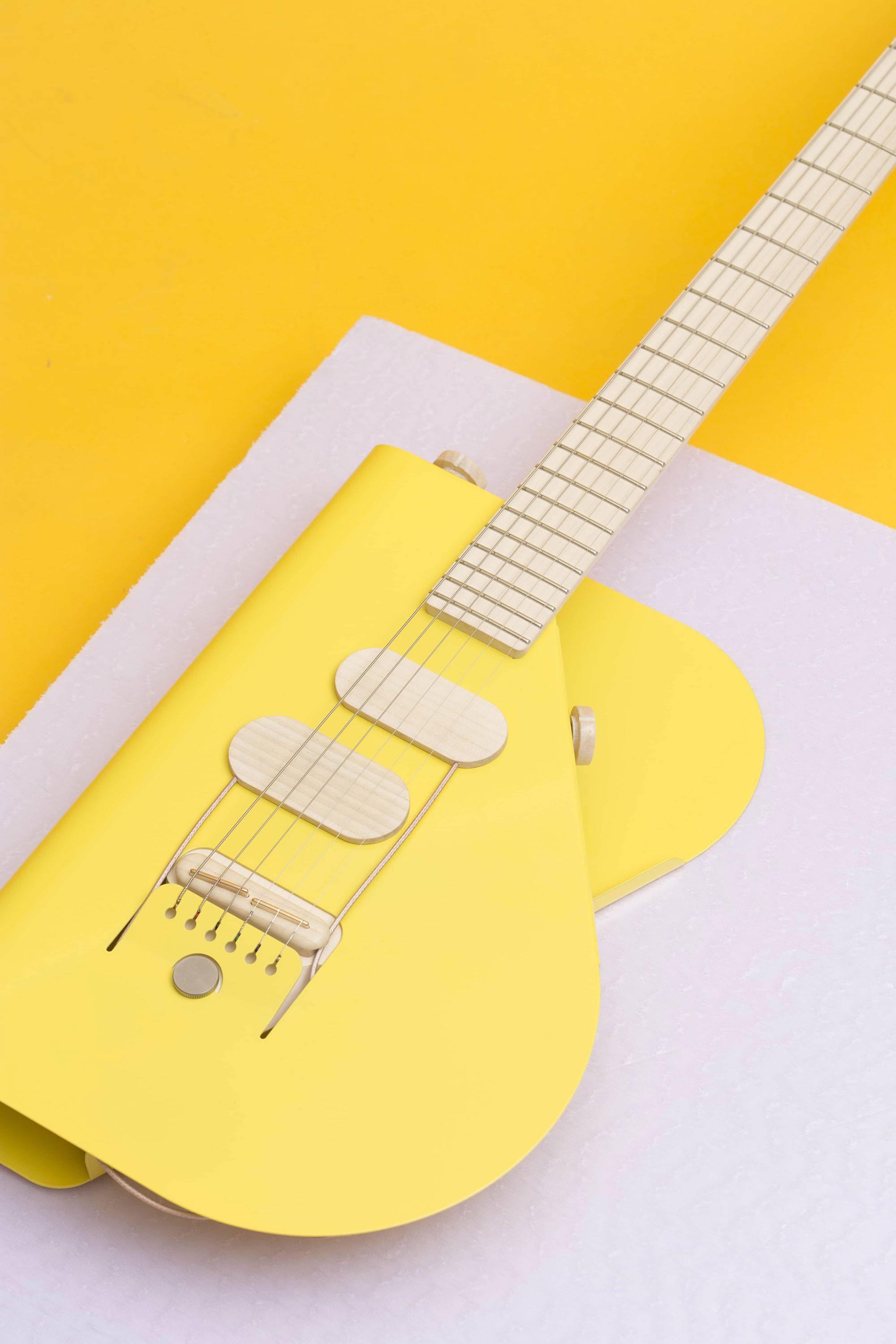
Owing to his background in industrial design and his self-taught luthier skills, Robin Stummvoll dexterously handcrafted each guitar, from bending the powder-coated metal to the neck and surface finishes, organising the electrics and winding the pickups, in his own workshop. The Cosmo is a coalition of artistry and industrialisation, honest and understandable and at the same time friendly and feminine. By challenging conventions, Verso Musical Instruments has materialised a sustainably produced electric guitar that embraces flexibility with its non-deterministic shape.






 Sign in with email
Sign in with email


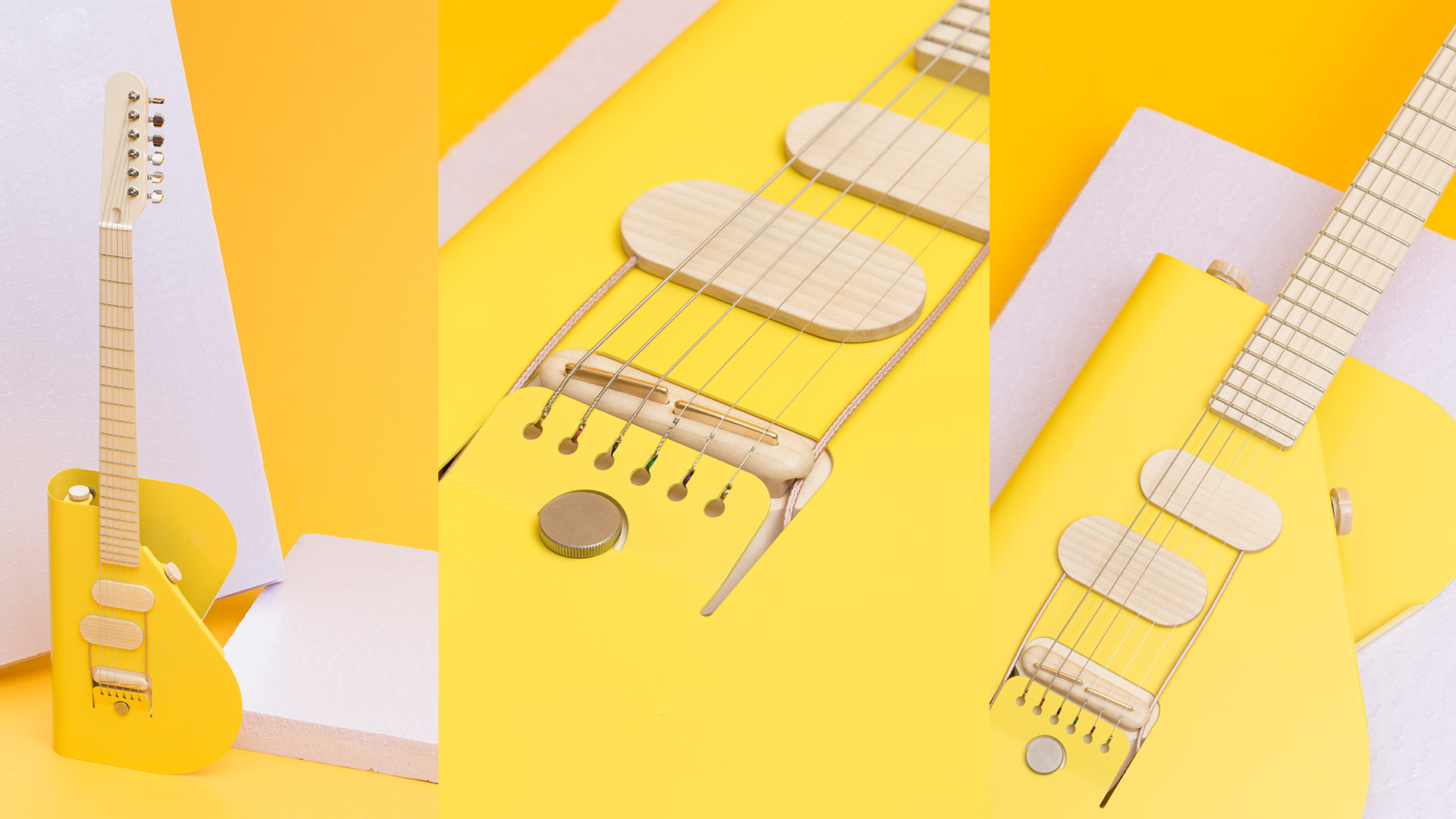
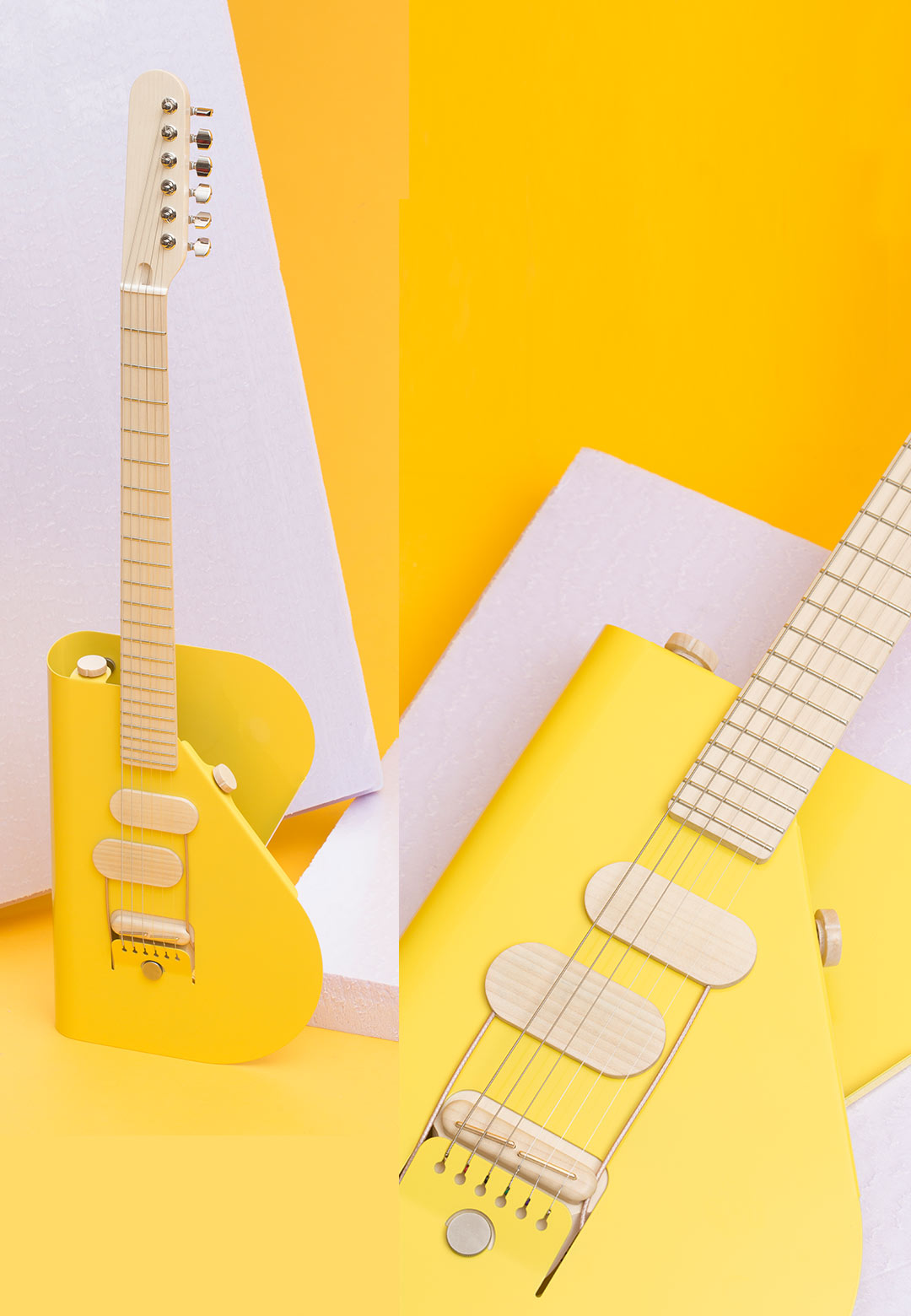
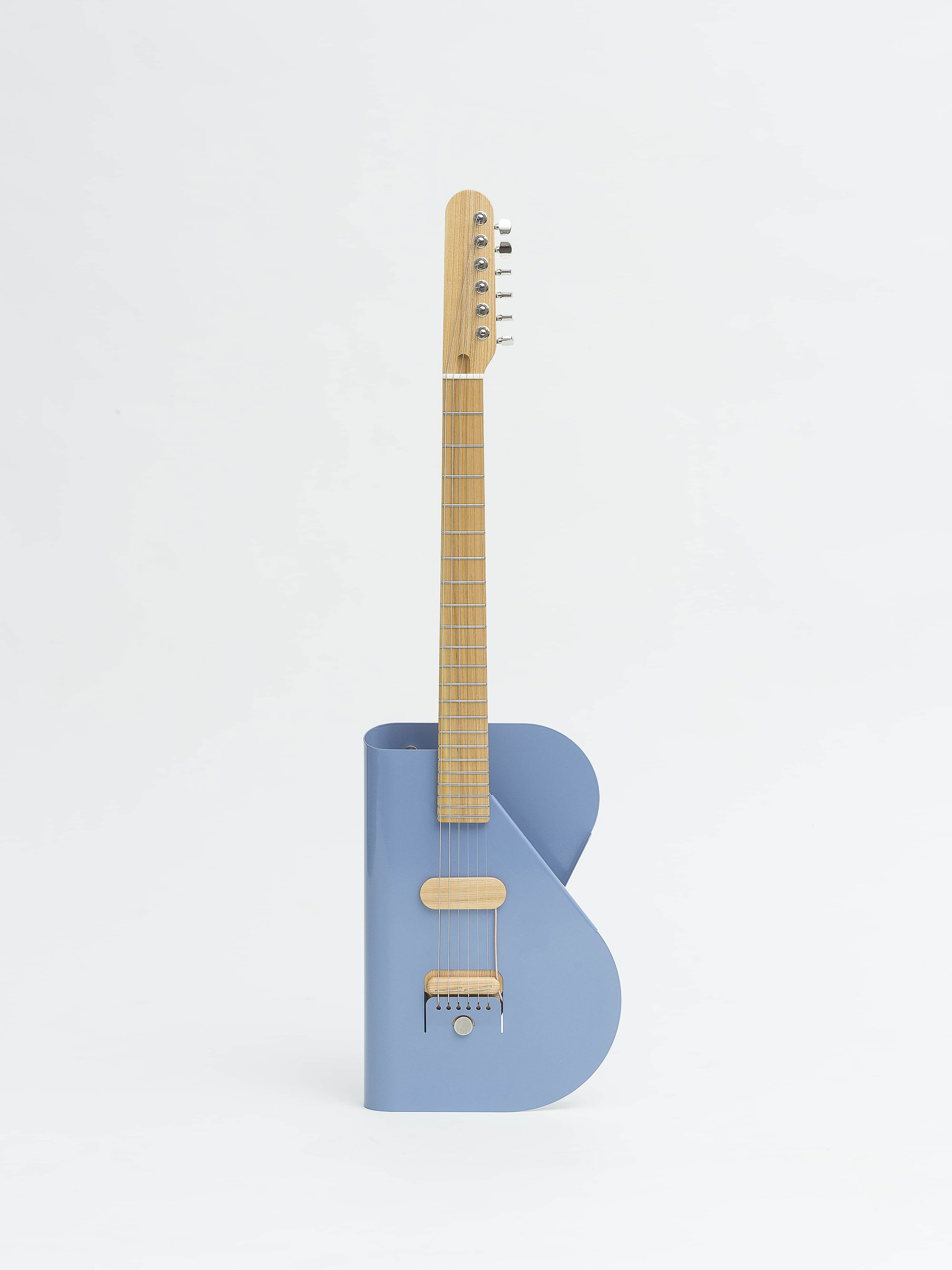
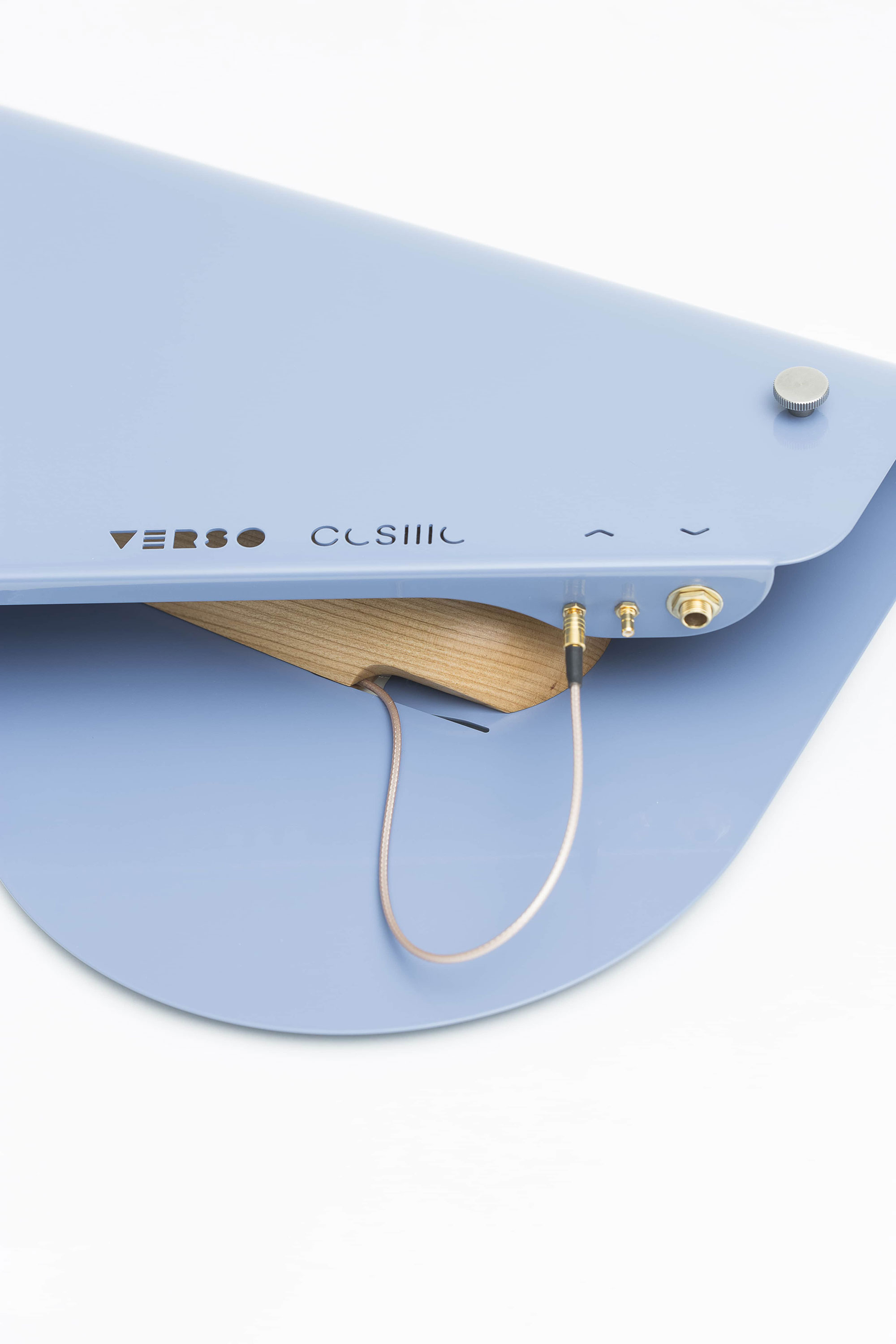
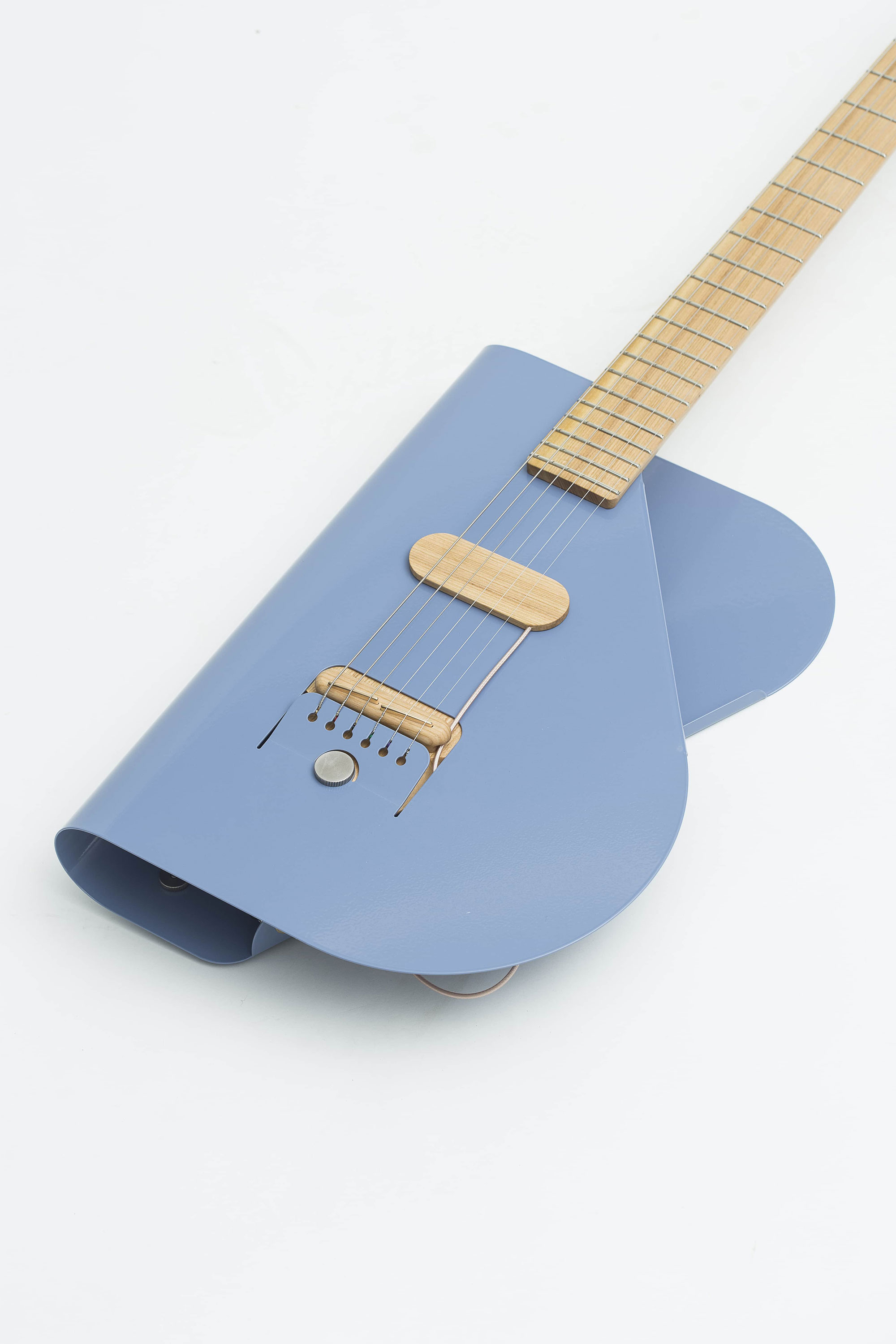
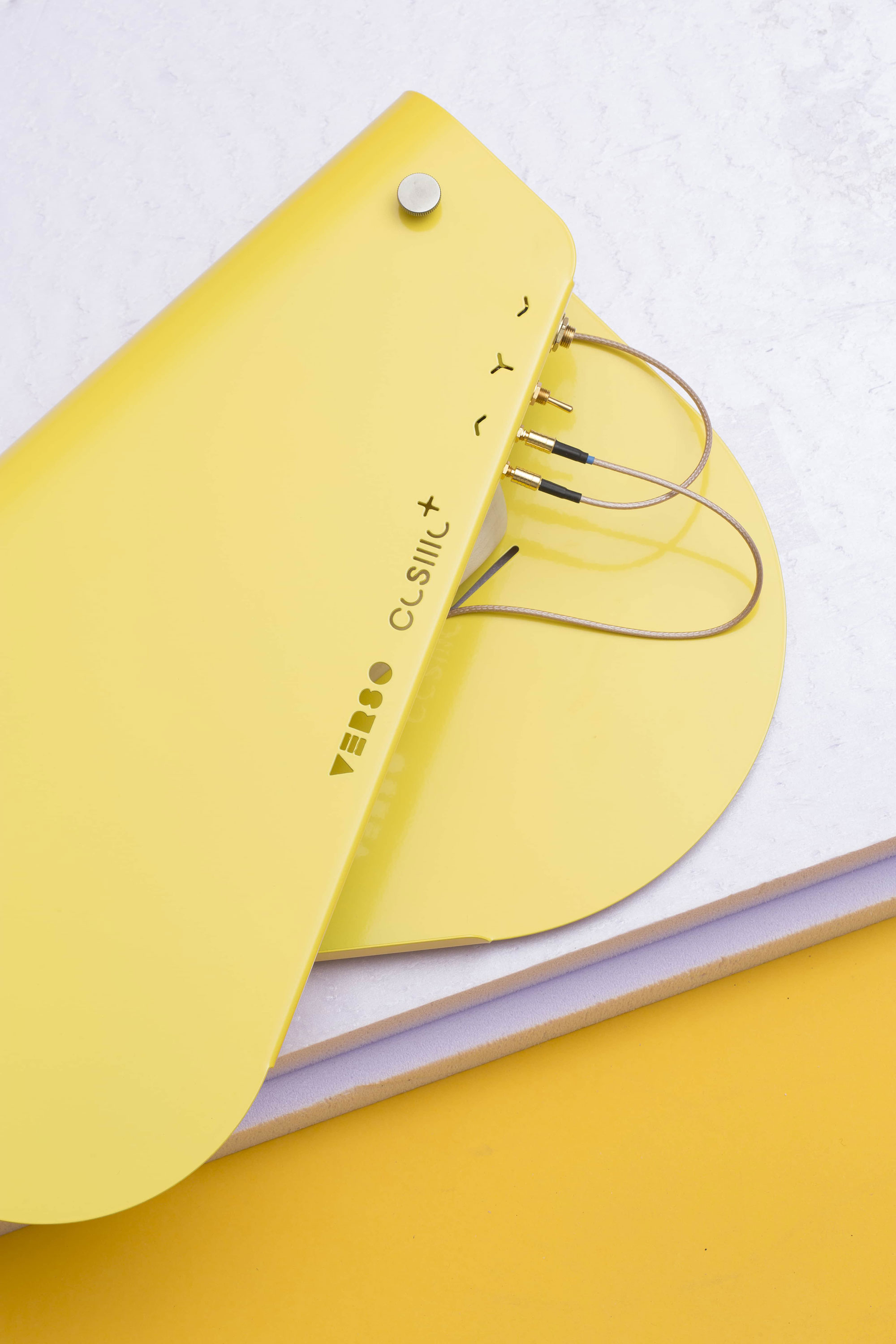
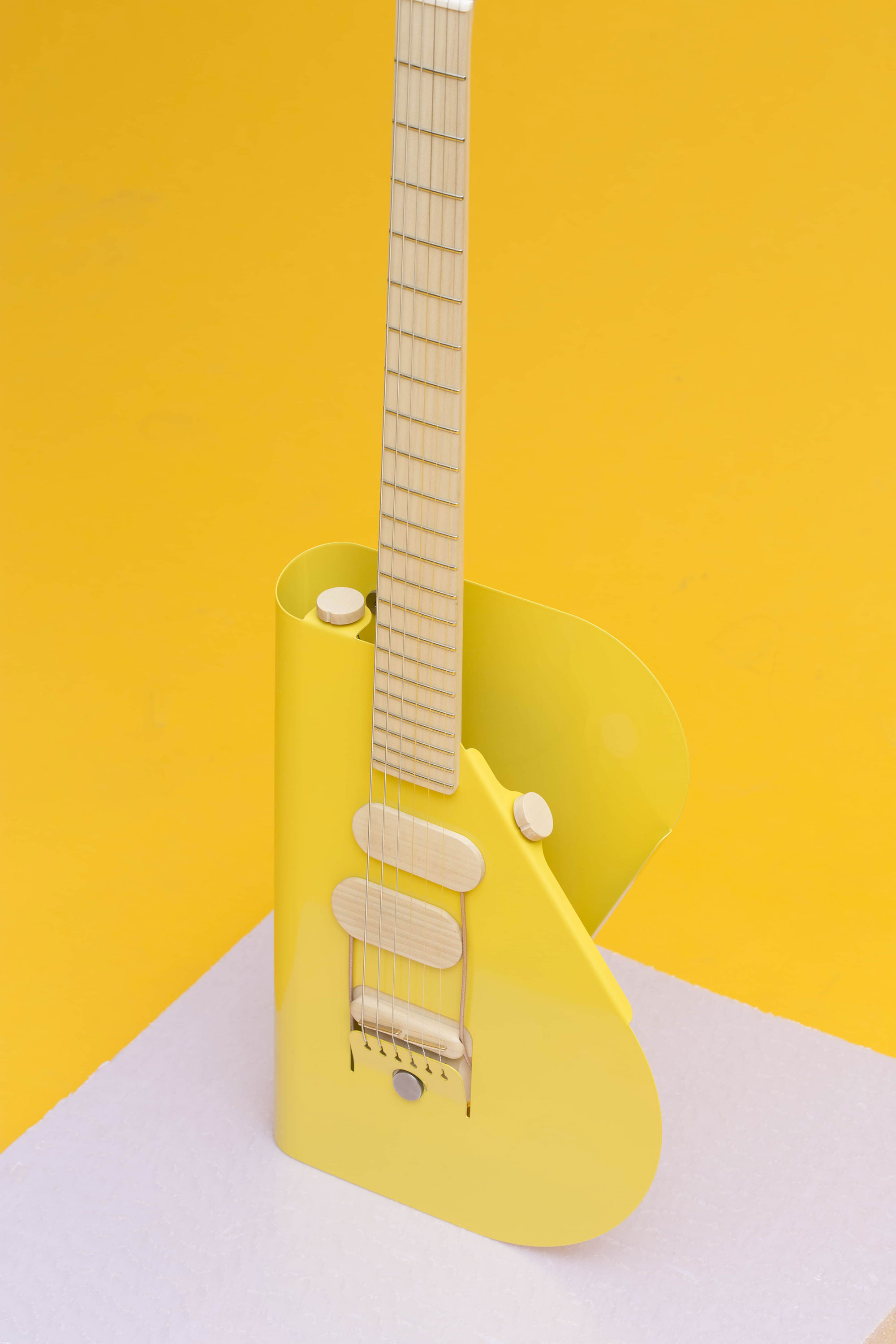






What do you think?